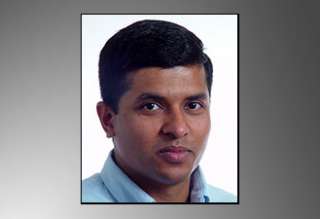SPS Feed
Top Reasons to Join SPS Today!
1. IEEE Signal Processing Magazine
2. Signal Processing Digital Library*
3. Inside Signal Processing Newsletter
4. SPS Resource Center
5. Career advancement & recognition
6. Discounts on conferences and publications
7. Professional networking
8. Communities for students, young professionals, and women
9. Volunteer opportunities
10. Coming soon! PDH/CEU credits
Click here to learn more.
The Latest News, Articles, and Events in Signal Processing
Date: 15 March 2023
Time: 10:00 AM ET (New York Time)
Presenter(s): Dr. Pierre Borgnat

The LivePerson Centre for Speech and Language offers a 3 year fully funded PhD studentship covering standard maintenance, fees and travel support, to work on cascaded deep learning structures to model speech. The Centre is connected with the Speech and Hearing (SpandH) and the Natural Language Processing (NLP) research groups in the Department of Computer Science at the University of Sheffield.

For further information and the link to apply please visit: https://www.jobs.ac.uk/job/CXH168/research-associate-in-integrated-multi... We are seeking an outstanding Research Associate in Integrated Multitask Neural Speech Labelling, to join the LivePerson Centre for Speech and Language Technology based at the University of Sheffield, which is linked with the Speech and Hearing (

The LivePerson Centre for Speech and Language offers a 3 year fully funded PhD studentship covering standard maintenance, fees and travel support, to work on cascaded deep learning structures to model speech. The Centre is connected with the Speech and Hearing (SpandH) and the Natural Language Processing (NLP) research groups in the Department of Computer Science at the University of Sheffield.

About the job
The Department of Electronic Systems (IES) has a vacancy for a Postdoctoral Researcher in statistical machine learning and distributed signal processing with applications in IoT. The successful candidate will be offered a three-year (3 years) appointment.

Joint postdoc position between Princeton University and the Weizmann Institute at the intersection of signal processing, communications, and biomedical applications.
The work will be performed with the groups of Profs. Andrea Goldsmith and Yonina Eldar. Background in one or more of the above areas required with the desire to expand into the other areas.
The candidate is expected to spend time in both locations, working with collaborative and supportive teams.

Joint postdoc position between Princeton University and the Weizmann Institute at the intersection of signal processing, communications, and biomedical applications.
The work will be performed with the groups of Profs. Andrea Goldsmith and Yonina Eldar. Background in one or more of the above areas required with the desire to expand into the other areas.
The candidate is expected to spend time in both locations, working with collaborative and supportive teams.
Date: 12 April 2023
Time: 9:30 AM ET (New York Time)
Presenter(s): Dr. Pan Gao, Dr. Alijosa Smolic
Date: 13 March 2023
Time: 1:30 PM ET (New York Time)
Presenter(s): Dr. Donald Williamson
Date: 29 March 2023
Time: 12:30 PM ET (New York Time)
Presenter(s): Dr. Mauricio Delbracio
Date: 26 April 2023
Time: 11:00 AM ET (New York Time)
Presenter(s): Dr. Preeti Kumari, Dr. Nitin Jonathan Myers, Dr. Robert W. Heath, Jr.
Date: 30 March 2023
Time: 8:00 AM PST | 5:00 PM (CEST)
Presenter(s): Arash Ajoudani
Date: 8 March 2023
Time: 7:00 PM ET (New York Time)
Title: Power Scaling of Uplink Massive MIMO Systems with Arbitrary-Rank Channel Means
Date: 10 March 2023
Chapter: Gujarat
Chapter Chair: Chirag Paunwala
Title: Wearable Sensor Signal Processing and Data Analytics for Health Applications
A computational experiment is deemed reproducible if the same data and methods are available to replicate quantitative results by any independent researcher, anywhere and at any time, granted that they have the required computing power. Such computational reproducibility is a growing challenge that has been extensively studied among computational researchers as well as within the signal processing and machine learning research community.
Visualizing information inside objects is an everlasting need to bridge the world from physics, chemistry, and biology to computation. Among all tomographic techniques, terahertz (THz) computational imaging has demonstrated its unique sensing features to digitalize multidimensional object information in a nondestructive, nonionizing, and noninvasive way.
Electromagnetic (EM) imaging is widely applied in sensing for security, biomedicine, geophysics, and various industries. It is an ill-posed inverse problem whose solution is usually computationally expensive. Machine learning (ML) techniques and especially deep learning (DL) show potential in fast and accurate imaging. However, the high performance of purely data-driven approaches relies on constructing a training set that is statistically consistent with practical scenarios, which is often not possible in EM-imaging tasks. Consequently, generalizability becomes a major concern.
Thanks to the tremendous interest from the research community, the focus of the March issue of the IEEE Signal Processing Magazine is on the second volume of the special issue on physics-driven machine learning for computational imaging, which brings together nine articles of the 19 accepted papers from the original 47 submissions.
As I am writing this article, I am wrapping up a trip as IEEE Signal Processing Society (SPS) president to Doha, Qatar (9–11 January), to speak at the 2022 IEEE Spoken Language Technology (SLT) Workshop, and India (12–16 January), for technical talks and meetings with local signal processing researchers and SPS local Chapter chairs.
Pages
SPS Social Media
- IEEE SPS Facebook Page https://www.facebook.com/ieeeSPS
- IEEE SPS X Page https://x.com/IEEEsps
- IEEE SPS Instagram Page https://www.instagram.com/ieeesps/?hl=en
- IEEE SPS LinkedIn Page https://www.linkedin.com/company/ieeesps/
- IEEE SPS YouTube Channel https://www.youtube.com/ieeeSPS

















